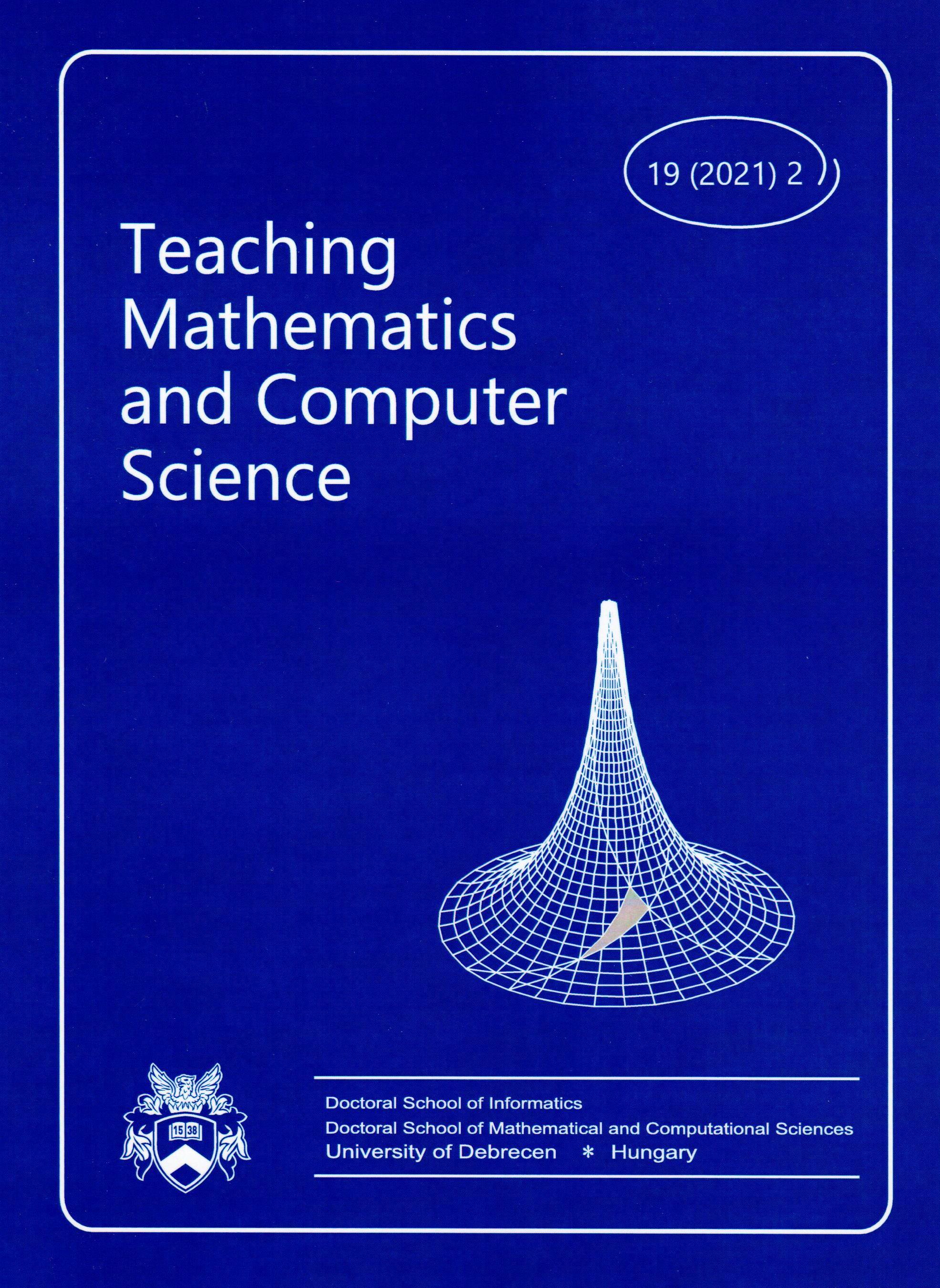Vol. 19 No. 2 (2021)
##issue.tableOfContents##
Articles
-
Differentiated instruction not only for Mathematics teachers
163-182Views:281The aim of differentiated development in a heterogeneous group of learners (DDHG) is to reduce school leaving without education, using an adaptive and innovative teaching-learning environment and using the most effective strategies, methods and techniques. Furthermore, this strategy helps in developing skills for learners and building cooperation between learners in heterogeneous classes through the use of the special, status-management educational procedure, and finally its strength is to sort the status ranking among learners, and to change the social structure of the class. Our goal is to figure out how to share best practices with teachers. One of the effective ways to renew teaching practice is through further training for teachers. As a trainer of the Logic-based subprogram of the Complex Basic Program (CBP) the author of the paper has experienced how well logic-based and decision-making strategies work in other subjects as well as in mathematics.
Subject Classification: 97D40
PDF228 -
A retrospective look at discovery learning using the Pósa Method in three Hungarian secondary mathematics classrooms
183-202Views:346While the Pósa Method was originally created for mathematical talent management through extracurricular activities, three "average" public secondary school classrooms in Hungary have taken part in a four-year experiment to implement the Pósa Method, which is based on guided discovery learning of mathematics. In this paper, we examine the students' and teachers' reflections on the Pósa Method, and how student perspectives have changed between their first and last year of high school. Overall, teachers and students had a positive experience with the Pósa Method. Furthermore, our research indicated that this implementation has met several objectives of the Pósa Method, including enjoyment of mathematics and autonomous thinking.
Subject Classification: 97D40
PDF282 -
The shift of contents in prototypical tasks used in education reforms
203-219Views:172The paper discusses the shift of contents in prototypical tasks provoked by the current educational reform in Austria. The paper starts with the educational backboard of the process of changes in particular with the out tting of the students' abilities in different taxonomies and its implementation in the competence models of Mathematics. A methodological didactical point of view on the process is given additionally. Examples out of a specific collection of math problems which arise from the educational reform are integrated and analysed in the context of educational principles and methods. The discussion ends with a short evaluation of the role of traditional approaches to tasks in the ongoing reform. A bundle of tasks as proof that they are still alive is presented finally.
Subject Classification: 97B50, 97D40, 97D50
PDF219 -
How do secondary school students from the Kurdistan Region of Iraq understand the concept of function?
221-244Views:287The study investigates secondary school students' understanding of the concept of function. The paper focuses on three main aspects: students' ability to define the concept of function; students' ability to recognize different representations of function; and students' ability to convert between different representations. A test was developed to assess the three main constructs of the study and administered to 342 students in secondary schools in the Kurdistan Region of Iraq. According to the results, students have diffculties in recognizing different representations of function and conversion between them. Connections between different parts of the test may provide hints on educational challenges of how to appropriately teach functions.
Subject Classification: 26Bxx, 97D60
PDF192 -
Correction to Gofen (2013): "Powers which commute or associate as solutions of ODEs?", Teaching Mathematics and Computer Science 11 (2013), 241-254.
245Views:135In the article "Powers which commute or associate as solutions of ODEs?" by Alexander Gofen (Teaching Mathematics and Computer Science, 2013, 11(2), 241–254. https://doi.org/10.5485/TMCS.2013.0347), there was an error in Conjecture 1 (p. 250), and consequently, in the References (p. 254).
PDF131







